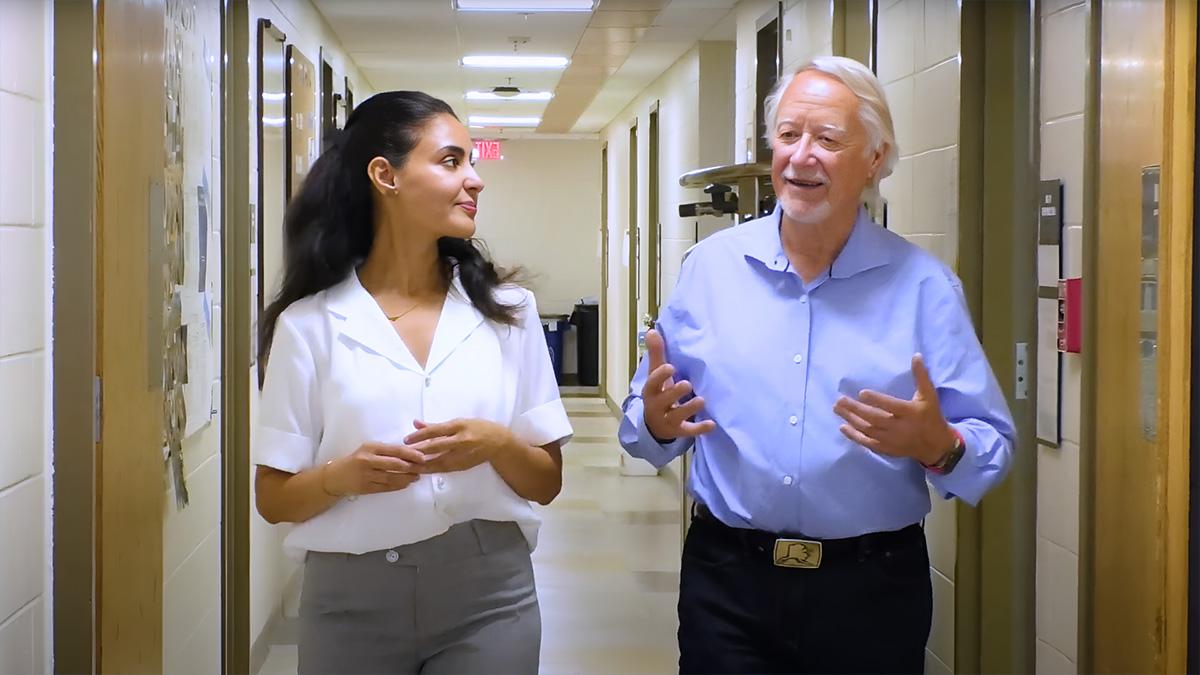Federal agency awards $10M to speed cancer diagnosis
Led by four researchers at UNC-Chapel Hill, the precision oncology center will also support personalized treatment.

A team of UNC-Chapel Hill researchers has been awarded up to $10 million in Advanced Research Projects Agency for Health funding to develop the Cancer Identification and Precision Oncology Center. The project is designed to improve cancer diagnosis and support personalized treatments by quickly collecting and analyzing a wide range of health data.
The center will use AI-ready data to generate real-time identification of new cancer cases, support patient recruitment for research, recommend precision cancer care and improve cancer care.
The project is led by four principal investigators at Carolina:
- Ashok Krishnamurthy, director of the Renaissance Computing Institute and lead faculty in the UNC School of Data Science and Society, is the data science core lead.
- Jennifer Elston Lafata, professor in the UNC Eshelman School of Pharmacy’s pharmaceutical outcomes and policy division, is the innovation and optimization partners lead.
- Caroline Thompson, associate professor of epidemiology at UNC Gillings School of Global Public Health, is the rapid identification core lead.
- Melissa Troester, professor of epidemiology at the public health school, is the precision oncology core lead.
“CIPOC is a multidisciplinary project that will significantly advance not just rapid cancer identification and precision oncology but also health data science and informatics,” said Krishnamurthy. “The approaches we are developing can be used in other areas of health care, which is possible because CIPOC brings together diverse expertise across a number of fields to work together on a common goal.”
Researchers from more than 12 schools, centers, departments and programs at the University will collaborate to create cutting-edge data tools to improve the diagnosis and treatment of cancer.
“While precision oncology has made major advances in recent years, translation of these innovations to practice has lagged behind,” said Thompson, a UNC Lineberger Comprehensive Cancer Center member. “By accelerating the identification of cancer cases and developing innovative informatics tools to make improved, precision recommendations for care, this project can advance the provision of equitable care services and delivery.”
The three-year project will focus on building an oncology learning health system at UNC Health, with the potential to expand. A learning health system integrates scientific evidence, data and culture into daily care with a commitment to continuous improvement and innovation. The goal is to produce high-quality and high-value care that is equitable across diverse populations.
“We are forming a panel of nationally recognized experts and advisers. This panel will provide our team with ongoing feedback and serve as an independent sounding board. Their input is crucial to ensuring the usability and acceptability of our processes and products,” said Lafata, co-lead of UNC Lineberger’s Cancer Care Quality Initiative. “This step is essential given our focus on accelerating academic discovery, optimizing cancer care delivery and supporting public health reporting. Additionally, these advisers will help us minimize any inherent biases in our work.”
The center will use AI tools, including large language modeling, to quickly standardize, harmonize and link data from multiple sources, enabling more precise tracking and treatment for different cancer types.
“We want to make precision oncology more widely available to North Carolinians. This project aims to develop tools that will use common medical record data to define care that responds to each patient’s unique tumor biology, reducing the need for additional, costly testing,” said Troester, co-leader of the UNC Lineberger Cancer Epidemiology Program.
The center will make its data tools open source, allowing them to be scaled and adapted by health systems of any size. This innovation aligns with ARPA-H’s national goals to strengthen health care system resilience and equity.







